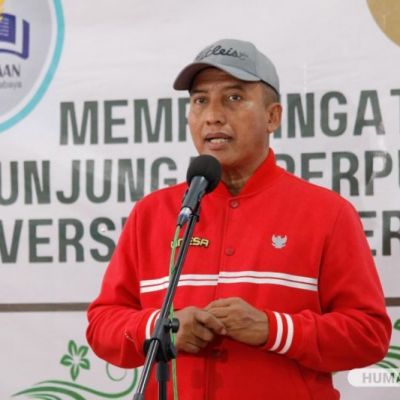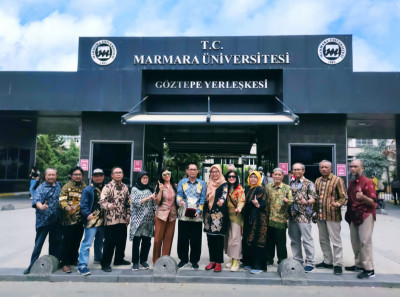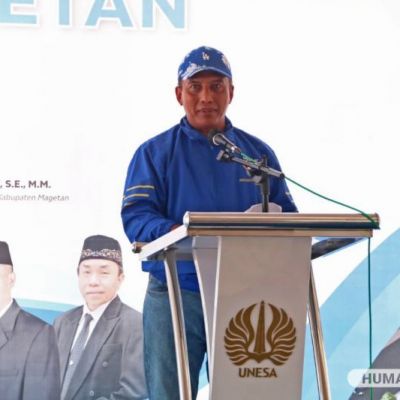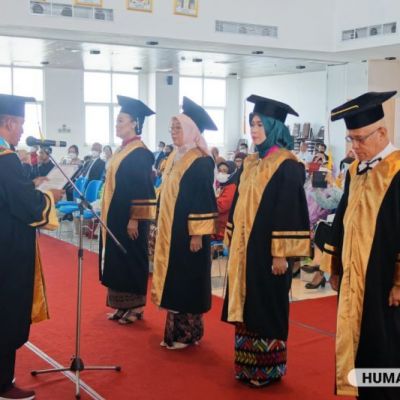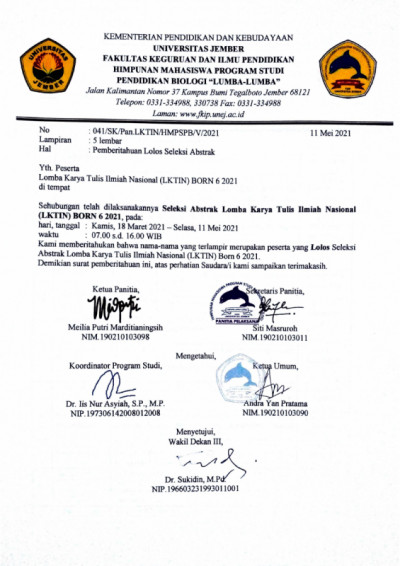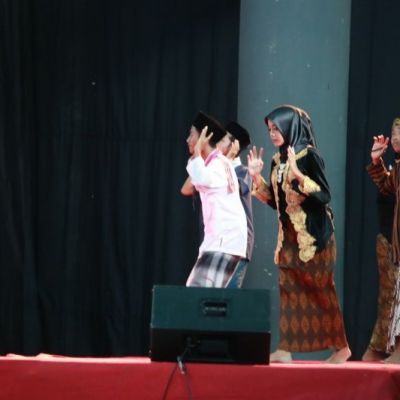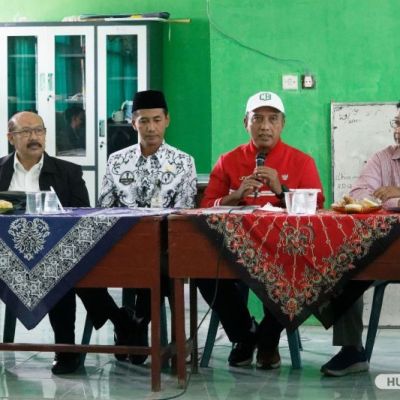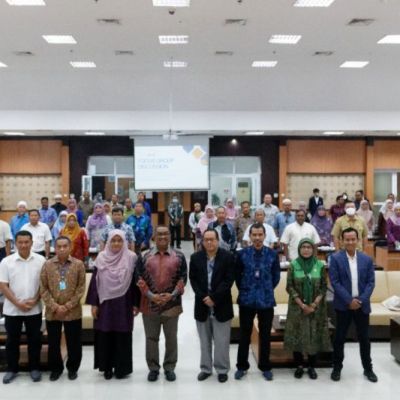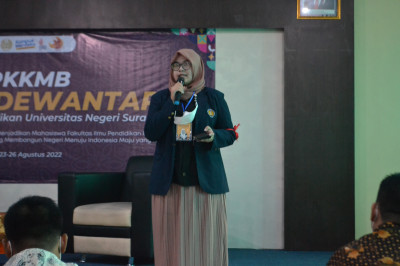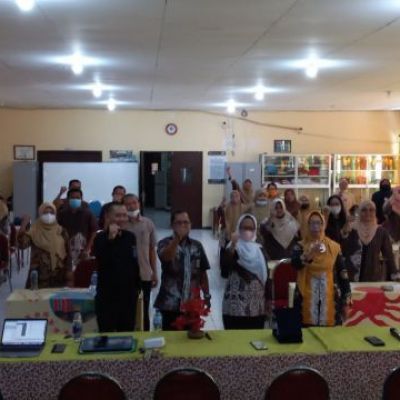Unesa.ac.id, SURABAYA–In the midst of an energy crisis ‘storm‘ that threatens various parts of the European continent, the Eco Campus, Faculty of Mathematics and Natural Sciences (FMIPA) Universitas Negeri Surabaya (UNESA) gave birth to renewable energy innovations. They designed “Microhydro”, a device for generating electricity using hydro and solar (hybrid) power.
The tool is the work of the Eco Campus student team, FMIPA. The team leader, Natasyah Valencia Nilafah Gea said that the tool they made combines micro-hydro power that utilizes water discharge with solar power.
This idea started when they were involved in the climate campus program in Jambangan, Surabaya. “If we think about it, in the future, this energy crisis will become a common threat. Well, we at Eco Campus are trying to find a strategy on how to produce electrical energy from the resources around us. Look for ideas and experiments and this tool was born,” he explained.
Equipped with
a Microhydro Flood Detector, continued Natasyah, besides being environmentally friendly, it is also economical because the cost of making this tool is relatively cheap and does not require fuel. Not only that, this tool is also equipped with features such as the appearance of the amount of power generated and has a sensor to detect flooding because its use depends on river flow.
According to him, the use of micro-hydro technology is considered quite effective, especially for areas that have rivers with fairly heavy flows. "For example, if the water flow is low and the flow is weak, we can use solar power or sunlight," he explained.
The working system of this tool is that the flow of water rotates the generator, then produces electrical energy which will enter the controller which is connected to the battery. Then the controller will supply electricity to the battery with a stable voltage to provide power to the inverter and create electrical energy.
"For now, we are still making it on a small scale, so we still use the output for low-power electrical equipment such as lamps," he explained.
Dra. Winarsih, M.Kes., as the supervisor of the Eco Campus also said that in the future this tool will be further developed in order to create environmentally friendly technology which of course can also be applied in the UNESA environment and even the wider community
. with the climate village program (PROKLIM) and has also been exhibited at the Jatim Environment Exhibition 2022 at the East Java International Expo (JIE) Convention Exhibition, Surabaya in mid-September yesterday.
“Our principle is how this innovation leads to new renewable energy. Besides being more environmentally friendly, it also anticipates the occurrence of an energy crisis like the one that has hit a number of European countries now," he concluded. [HUMAS UNESA]
Author: Mohammad Dian Purnama
Photo: Documentation of the PPK Ormawa Eco Campus FMIPA Team
Eco Campus Team Creates Environmentally Friendly Power Generation Equipment
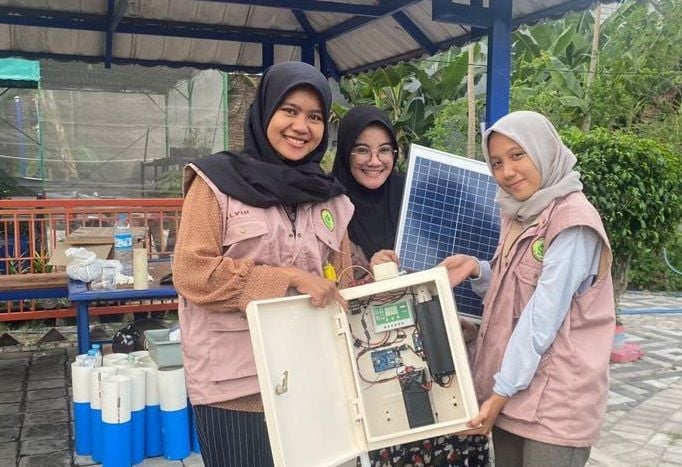
29 September 2022

